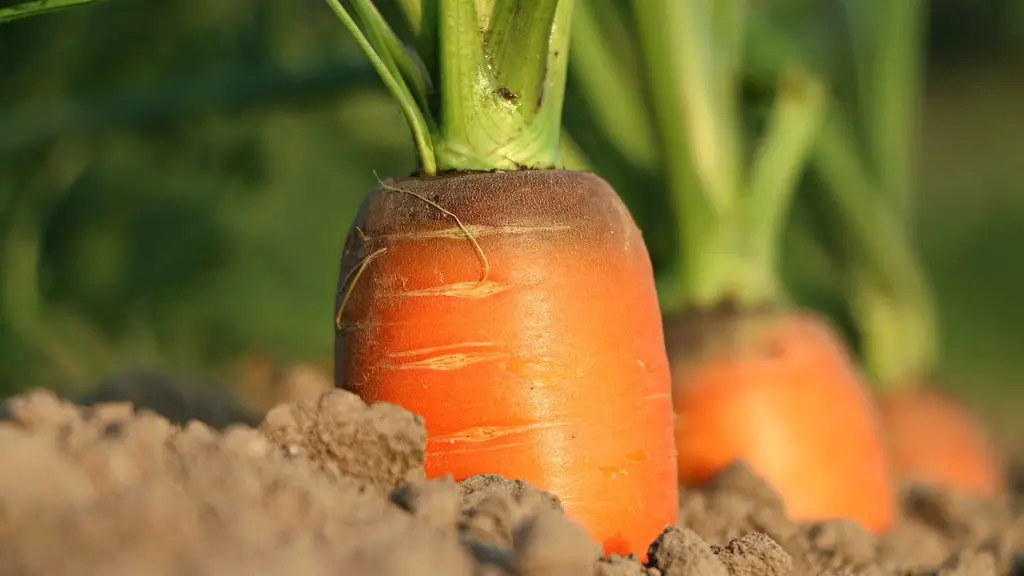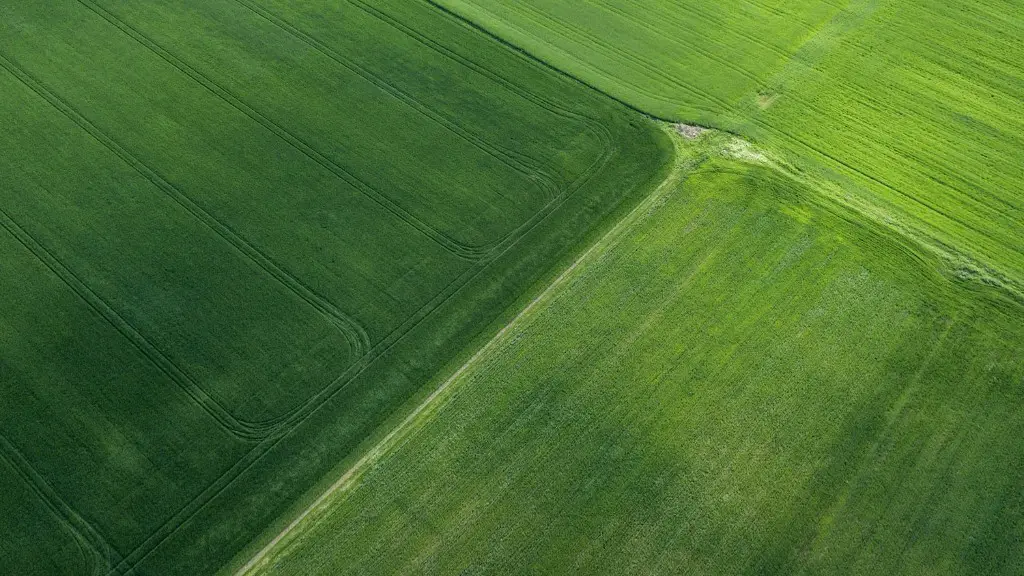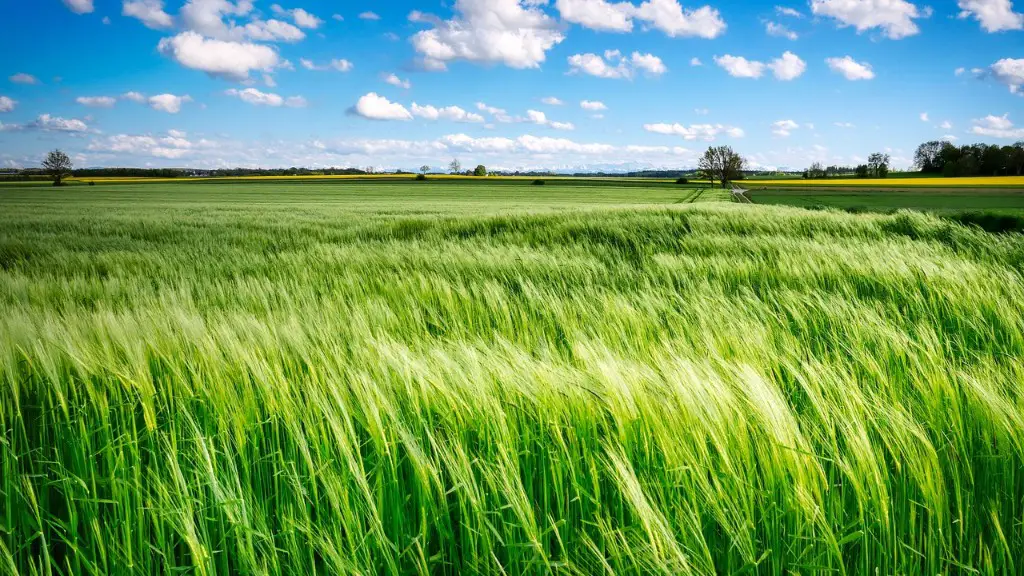Agriculture is the process of producing food, feed, fiber and other desired products by the cultivation of certain plants and the raising of domesticated animals. The practice of agriculture has been around for thousands of years and continues to play a vital role in human societies all over the world. While the methods and technologies used in agriculture have changed dramatically over time, the basic goal of producing benefits for human beings has remained the same.
The benefits of agriculture are numerous and can be seen in both developed and developing countries. Agriculture provides people with the food they need to survive, which is essential for human health and wellbeing. In addition, the products of agriculture can be used to create other products that we rely on, such as clothing and fuel. Agriculture also provides economic benefits to farmers and other people involved in the industry, which can contribute to the overall development of a country.
Despite the many benefits of agriculture, it is also important to recognize the challenges that the sector faces. Agriculture is a complex system that is sensitive to changes in the environment, which can impact the production of crops and livestock. In addition, the agricultural sector is often affected by global economic conditions, which can make it difficult for farmers to make a living. However, with proper management and support
The benefits of agriculture are too numerous to list, but they can broadly be divided into those that benefit the economy and those that benefit society. Agriculture provides economic benefits by creating jobs, boosting exports, and generating tax revenue. It also benefits society by providing food and fiber, improving environmental quality, and supporting rural communities.
How does agriculture benefit the economy?
The agricultural industry is a vital part of the US economy, accounting for over 10 percent of total employment. Direct on-farm jobs accounted for over 26 million jobs in 2020, representing almost 15 percent of total jobs in the country. The agricultural sector also contributed significantly to US household spending, with food accounting for over 10 percent of total expenditure in 2020. This placed agriculture third in terms of total household spending, behind only housing and transportation.
The Agricultural Communities note discusses how families and larger groups were able to build communities and transition from a nomadic hunter-gatherer lifestyle dependent on foraging and hunting for survival. The note explains how the establishment of domesticity allowed for the development of agriculture, which in turn led to the formation of communities. The note describes how the agricultural lifestyle allowed for the growth of civilizations and the development of cities and states. Finally, the note outlines the impact that the agricultural community has had on the world today.
What are three reasons agriculture is important to humans
Agriculture is important because it provides food, clothing, and shelter. People need these things to live a good life. Agriculture also helps people to enjoy a higher quality of life.
1. Agriculture is the main source of raw materials for industries.
2. It is important to international trade.
3. It plays a big role in a nation’s revenue.
4. It provides employment.
5. It’s crucial to a country’s development.
6. It can help heal the environment.
7. It goes hand-in-hand with war.
8. It can help provide food security.
9. It can help preserve cultural heritage.
10. It can be a source of recreation.
Why agriculture is most important?
Agriculture is the backbone of the world economy, providing most of the world’s food and fabrics. Cotton, wool, and leather are all agricultural products, and agriculture also provides wood for construction and paper products. The methods used in agriculture may vary from one part of the world to another, but the overall goal is always to provide food and other products for the world population.
Agriculture is the main source of raw materials for many industries, including cotton and jute fabric, sugar, tobacco, edible and non-edible oils. Other industries that rely heavily on agricultural raw materials include the processing of fruits and vegetables and rice husking.
How is agriculture good for the environment?
Sustainable agriculture is a type of agriculture that is characterized by three main goals: protecting the environment, conserving natural resources, and providing a fair standard of living for farmers and workers.
Sustainable agriculture is not a new concept. In fact, it is a return to the way agriculture was practiced for centuries before the advent of industrial-scale farming.
There are many benefits of sustainable agriculture, including:
1. Protecting the environment: Sustainable agriculture practices can help reduce pollution, conserve water, and promote soil health.
2. Conserving natural resources: Sustainable agriculture can help reduce the need for synthetic fertilizers and pesticides, and avoid depletion of groundwater resources.
3. Providing a fair standard of living for farmers and workers: Sustainable agriculture can help improve the working and living conditions of farmers and agricultural workers.
4. improving the quality of food: Sustainable agriculture can help produce food that is healthier and safer for consumers.
5. Ensuring food security: Sustainable agriculture can help support local and regional food systems, and reduce the dependence on imported food.
6. Promoting economic development: Sustainable agriculture can create new job opportunities and support the development of rural communities.
The development of agriculture is called a revolution because it has had radical changes on human society throughout history. They resulted in the invention of the first cities, allowed for industrialization, and caused the human population to grow massively.
What is the most important thing in agriculture
The agriculture industry may be one of the most important industries in the world because it is responsible for the food supply. Agriculture is responsible for everything from harvesting crops to raising livestock, so it is important to the diets of both vegetarians and carnivores. Without the agriculture industry, the world would be without a major food source.
The poorest people in society benefit the most from agricultural growth. This is because agricultural growth increases the demand for labor, which in turn increases the probability of getting a job. Furthermore, agricultural growth may also lead to increased wages, thereby increasing the income that can be earned from selling labor.
What are the impacts of agriculture to the society?
The agricultural sector globally is under immense pressure to produce more food to meet the ever-growing demand. This often results in agricultural practices that degrade the land, such as soil erosion and salinization. Agriculture is also a major contributor to greenhouse gas emissions, which are responsible for climate change.
The importance of agriculture cannot be underestimated – it is vital for the provision of food, clothing and other materials. Without it, we would be lost.
Agriculture provides us with food such as maize, rice, yam, vegetables, fruits, meat and milk. It also provides us with the materials we need for clothing such as fibre and cotton.
Agriculture is essential for our survival and we must do everything we can to support it.
What is the importance of agriculture to the community
The importance of agriculture to the community is immense. It provides jobs, boosts economic growth, sustains the community by providing food and other raw materials, and is overall essential to the community’s well-being.
Sustainable agriculture can help reduce these emissions while still feeding the growing population. Sustainable agriculture practices include things like using less water, rotational grazing, and planting cover crops. These practices can help store carbon in the soil, which can then be used by plants to grow.
What are 2 positives of agriculture?
Agriculture is the backbone of any economy and society. It provides food for people to eat, jobs for people to do, and raw materials for products that we use. Agriculture also has a big impact on the environment. It can help to restore and improve the land, and it can also pollute the land and water.
Industrial agriculture has its pros and cons, but overall it has been a positive force in increasing food production, lowering consumer costs, and encouraging technological development and innovation. It has also created employment opportunities and lengthened food availability.
Warp Up
Agriculture provides benefits in many ways. It helps us to secure our food supply, provides employment opportunities, and can be a source of revenue for farmers and other agricultural businesses. Additionally, agriculture can help to conserve natural resources, such as soil and water, and can provide environmental benefits by sequestering carbon and other greenhouse gases.
Agriculture provides many benefits for people and the economy. It is a major source of food, jobs, and income. It also helps to keep prices of food down by providing a large supply. Agriculture also provides environmental benefits by helping to conserve land and water and by providing a buffer against climate change.





